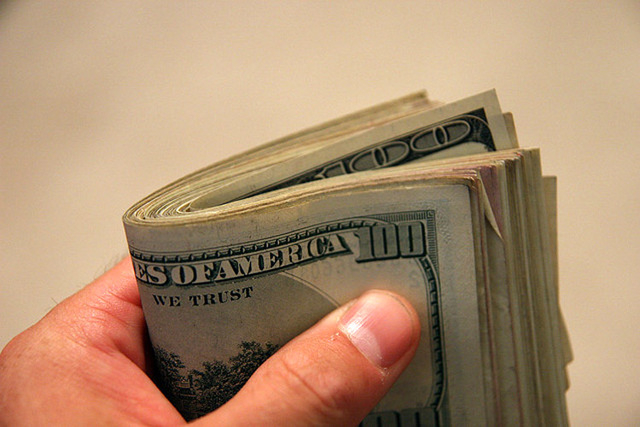6 ways to save $1,000 by the end of the year
There’s nothing like the feeling of starting off a new year with a clean slate and hopeful outlook. Unfortunately, for many, October kicks off a string of major holidays that will ultimately lead them toward a wall of debt in 2015.
The best way to ensure you kick off January debt-free is to be proactive — start saving now so you don’t have huge credit card bills to deal with once the holiday celebrations are over. Of course, it’s going to take serious budget cuts and commitment to reach a comfortable $1,000 buffer. So what can you do to save big besides giving up your morning latte and brown-bagging lunch?
1. Get rid of your cable already.
Ever wonder how you can pay for so many channels and yet there’s never anything good to watch? It’s because there really is nothing good to watch.
Get rid of your cable television to save hundreds of dollars, hours of free time and probably a few brain cells before the end of the year. You’ll be amazed at how quickly the urge to binge on episodes of Real Housewives disappears.
2. Go dry.
Alcohol, while delicious, is a budget item that’s equally expensive as it is unnecessary. Although some will argue the benefits of a daily glass of wine, generally, booze does very little to improve your health or bottom line.
If you’re serious about saving money, abstaining from alcohol for a month or longer is an effective way to uncover extra funds. And if you think hopping on the wagon during the holiday season is nothing short of ludicrous, remember that there’s no harm if someone else happens to buy you a drink.
3. Have a bill haggle day.
Personal finance writer Kristin Wong is a huge advocate of the bill haggle day, a day dedicated to calling utility companies and negotiating lower rates. Though you would probably rather eat cardboard than spend hours on the phone with customer service representatives, just remind yourself it’s one day of work that will continue to pay off every month.
4. Rethink your insurance.
Insurance tends to be a set-it-and-forget it expense: Pick a carrier, choose a plan and commence paying premiums for the next 50 years. However, reexamining your current insurance policies and making long-overdue adjustments is an often overlooked strategy for cutting costs.
Kurt Tech of Talmer Bank and Trust changed up his insurance to quickly recover hundreds of dollars. “People get complacent with their insurance companies, always writing checks thinking their agent has the best deals,” he said. “It’s so easy to shop around and it’s free. That saved me $1,400 in the last year.”
5. Go on a fiscal fast.
Invented by personal finance expert Jeff Yeager, a “fiscal fast” is a week during which you do not spend any money. Not a dime.
On the surface, fasting prompts you to use up what you have in your pantry, find free sources of entertainment and get creative about transportation. At its core, the fiscal fast forces you to reflect on your relationship with money and learn how to be satisfied with less. But even if you fail to come away with any larger, philosophic realizations about your finances, you will at the very least save an entire week’s worth of expenses.
6. Delay Christmas gifts.
Finally, if you are truly serious about making it through the holiday season debt-free, consider delaying the holidays altogether. But that doesn’t mean you have to play the role of the Grinch in December; simply trick your children.
“I give kids a home-made gift certificate for admission to an amusement park of their choice,” explained Holly Wolf, Chief Marketing Officer for Conestoga Bank. “Of course, the parks are closed in the winter, so you have until spring to get the money together … [plus] when you give it to them in the spring, it’s like another gift and they love it.”
Above all, the key ingredient to successfully saving $1,000 by the end of the year is commitment. If you tell yourself you’re going to “try” and save $1,000, it’s not going to happen. Be committed and hold yourself accountable. You’ll be happy you sacrificed three short months to set yourself up for a year of financial success.
Related links:
-7 secret fees cutting into your travel budget
-5 adventurous and affordable fall vacation spots for baby boomers
-6 financial factors to consider before having kids




























